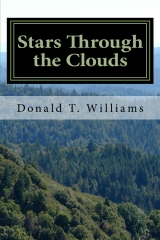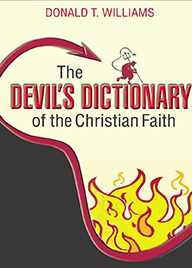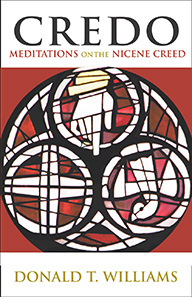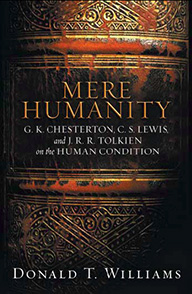Summer-Autumn, 2011
Francis
Hart
My
favorite poets are Keats and Brooke. I
have a BA. I've had a few poems
published in magazines recently. Some
time ago I was twice nominated for a
Pushcart. I didn't win.
Two Stanzas On Poetry
To come up with the something that is art -
Rhythms, rhymes and images and phrases -
The truths that come to those who live apart -
Inconsequential truths - in verse that dazes
The mental senses - like a single tone
Sung by a soprano singing high -
Or the ocean to a man who lives alone
Who sings to it to hear the sea reply -
My Cat
I
pet my cat. He shuts his eyes,
In sleepy warm contentment lies.
In my house he's not a waif
And thinks he is completely safe.
Precious cat, you make me cry.
You're no more secure than I.
John
MacLean
A graduate of Fordham
and Oxford, John MacLean
as been a construction worker, merchant
seaman, church sacristan, and assistant
district attorney. Mostly,
he has been a high school
English teacher for 29 years. His
book, If
You Teach It, They Will
Read: Literature's Life Lessons for Today's
Students is
published by Rowman and
Littlefield.
The
Game Preserve
Summer, I joined a drive-through game park’s staff
With creatures brought to wild New Jersey hills.
No tourist saw the ones amusement kills:
We bulldozed rotting baboon and giraffe.
A skull hung from the mirror of our truck
Perhaps was bad for business after all,
And when the park went bankrupt in the fall
The beasts were caged; we left to try our luck.
I dreamt a creature missed and left to brood
Alone, in artificial habitat
To shiver in a leafless maple where
It missed the keepers’ scientific food,
But longed for fellows, tropics, even that
A car with children might bestow a stare.
I
Still Like Poems
Because the words come first, I still like poems,
Where even a profound idea must sing.
The clunky sentences of windy tomes
Can’t match some iams that can conjure Spring.
And Aristotle said a poem must please
As well as teach a lesson long or brief.
It’s rhythm and enjambment that can tease
Some truth and beauty into bold belief.
You don’t have to go blind or learn the harp,
Just tinker with some squiggles on a page,
To celebrate your own barbaric yawp,
And to be celebrated as a sage.
Yes, Dickinson said poems should leave you scalped.
So, writing them might hurt? It can’t be helped.
Thomas Zimmerman
Thomas Zimmerman teaches English, directs the Writing Center, and edits three literary magazines at Washtenaw Community College, in Ann Arbor MI. Poems of his have appeared recently in Rabbit Catastrophe Review, Yellow Mama, and Corner Club Press. His latest chapbook is Nights Your Wife Is Gone.
Houghton Lake Triptych
Houghton Lake, MI
1. A Little Song at Houghton Lake
The clouds have lifted, voices sweeter deep
inside my head: it’s you, O Muse, come down
to help me write a little song to keep
me sane. This cabin fever: far from town,
I read, I paint, do push-ups, knee-bends, eat
as healthy as I can, but drink too much.
A microcosm of my life, complete
with wife who cleans and dog that sleeps, my crutch
of industry: I’m keeping busy, need
to work, to feel the joy my parents made
me with, and for. The trees are swaying, freed
of leaves, their dun-brown shifting sun and shade:
a mirror of a rooted, balanced me,
alive, attuned to change eternally.
1 March 2011
2. Who?
It’s Thomas Zimmerman; it’s I, who fell
through ice at Houghton Lake; who read and loved
those Borges sonnets, even ones that tell
us nothing but the grace of form; who, gloved
and hatted, trotted with my dog in pain
on single-digit-wind-chill county roads;
who made lasagna, drunk on cheap champagne
and microbrew; who entertained, was loads
of laughs for friends and wife at rented lodge
(I lie to rhyme); who sought to halt the march
of time for eight vacation days, to dodge
the law of entropy, the winds that parch
oases of the dreaming mind; who gives
you, reader, this; who, at this moment, lives.
3 March 2011
3. None of This Comes Easy
I know from here on out that none of this
comes easy: mirror in the bedroom, dog
that needs to eat, a jigsaw puzzle miss-
ing pieces (tired trope!), my mind in fog
from beer at lunch, red wine at suppertime,
the ice storm snagged in leafless trees outside,
accepting getting older, uphill climb
a metaphor whose tenor’s changed, hair dyed.
Of course, my suffering’s desire’s child.
What do I want? It isn’t barren death,
I hope; my life’s subsistence farms still yield
enough to keep my soul from flying wild
to feasts more succulent. It must be breath
for words like these I write; to read them, healed.
4 March 2011
Nocturnal Creatures
My dog’s a ghost so white I see her in
the dark; I hear her rise, then circle, yawn,
then circle, circle, plop her body on
her bed and gurgle, sigh, then snore. The din
could wake the dead, but it’s the living—I,
to be precise—whose eyes are saucers brimmed
with dread’s espresso, head’s a full moon dimmed
and pocked by flocks of snowy owls that fly
unwisely round and round a forest bare
of prey. My wife’s a polar bear; the paw
that whaps my face is hers—she’s hunting minks
and ermines in her dreams. A yellow mare
appears, drops colts bright red, blue-green—all gnaw
my scrubby hair. One sees me cry, then drinks.
John Van Doren
Now retired, John Van Doren lives in New York City. He was a teacher and editor for most of his working life. He has written poems, some of which have been published (he hasn't consistently tried) for 30 years. He claims no single reason for doing so. Poetry is an art. He enjoys the result when he thinks well of what he's done, which however he says he often revises. Among magazines and websites where his stuff has appeared are Prophetic Voices, Tapestries, Jewish Currents, The Lyric, Kentucky Poetry Review, The Willow Review, Cumberland Poetry Review, Gryphon, and Iambs and Trochees. Poetry has also shown up, or shortly will show, on Able Muse, lucid rhythms, Chaemera, The Journal of Formal Poetry, Maine Poet, and Show Biz.
JOY
What word? Bad news? He wouldn't speak
of it,
Walked silent to his room with downcast eyes,
Leaving wonder, fear, and then our pity
That, as it seemed, he hadn't gained a prize
Given at the Fair for his self-portrait.
But yet he had, and when indignantly
We called him down to say so--to accept
Congratulations--how could he refuse?
In fact he grinned, no longer overcome
But sharing of what miserly he'd kept
A secret, hoarding briefly like a sum
What now he let us hold and couldn't lose.
Winter Damage
Why did some deer elect to rub
The bark of this young maple tree,
Planted in line along the road
Where it must show its injury?
A dozen, a hundred others grow
Around the field, and would have done
As well for antler itch, or served
Equally, deer-wittedly, for fun.
It may survive. The sap of spring
Still could rise as in a vein
Along the cambian way, what’s left
Of it, and green leaves come again.
Meanwhile I wish I’d thought to wrap
The slender trunk against such chances,
Not guessing it would need it,
Measuring not the stem but branches,
Longer each year. But chance
Is what we don’t foresee, a knife
That drops where it pleases. I wait,
Hoping it spares this neck its life.
Anchor Line
This
hand you take, these
fingers keep
In darkness, sleep-bound, pillow-pressed,
I let you have, nothing confessed
Of my dream journeys to the deep,
From which I must climb back at light
And can by such a constant grasp,
Not sorry to escape the clasp
Of arms imagined in the night.
I think you sense I wander thus
For all I never tell you where,
Nor do I try to take you there,
Knowing it's not the place for us.
So do you hold my anchor line
Dear heart, dear love, dear lady mine.
Retirement Home
Love in these two is mild
By passion’s measure, warm
Only in a glance, wild
If at all past harm
In blood become aware,
A secrecy of care.
There’s business, true. They go
On trips, read books,
Sometimes take in a show.
Her room at night--she cooks,
He washes up, before
He finds his separate door.
Still, in the main the bond
Between them, who never met
Till now, is mutely fond,
Unseen, save as they’re set
Apart from those who brood
On final solitude.
Mel Goldberg
After earning an MA in English, I taught literature and composition in the United States and England. My poetry has been published in numerous magazines and my short stories have appeared in print and on line. My book of poetry and photography, The Cyclic Path was published in 1990. My novel, Choices, and my book of previously published short detective stories, A Cold Killing, are now available on Kindle and Amazon or Rolemi Publishers (rolemipress@yahoo.com).
Not If But When (A Sestina)
The certainty is one day I shall die
the reality is not if but when
now that my life is closer to its end
than its beginning, I look back and see
my past as looking through the narrow neck
of a great bottle where my deeds repose.
Unalterable now, my exploits repose,
they are completed. I have cast my die.
For good or ill acts hang about my neck
much like the hapless albatross when
the mariner let fly his dart to see
if actions signaled ill-starred sailors’ end.
He learned when shipmates’ lives came near an end
each man refused his watery repose.
Like me, they clung to life but did not see
eternal sleep in peace. The time to die
is hidden from my view. I know not when
the weighty bird be lifted from my neck.
Should I stand on my toes and crane my neck
and try to peer ahead to my time’s end?
It matters not. In truth I care not when
I shall lie in my ultimate repose.
Though some may weep for me after I die
life will continue. Will I learn to see
death as a new beginning? Will I see
all who have preceded running neck and neck,
toward a blaze only to watch it die
unable to bring life to embers’ end,
and forced into the darkness of repose
reminded that it is not if but when.
Therefore in this solitary life, when
opportunity arrives, do not see
others as slogging off to their repose,
but rather think rather they wander through the neck
of bottled history toward the end
where they await their proper time to die.
Not if but when: the thought stretches my neck
to let the whole world see that at the end
I welcome my repose, my time to die.
Katherine
Smith
Katherine Smith’s work has been published or is forthcoming in a number of journals and reviews, among them Ploughshares, The Journal of the Motherhood Initiative, Poetry, Shenandoah, The Southern Review, Atlanta Review, Appalachian Heritage, and The Laurel Review. Her first book, Argument by Design (Washington Writers’ Publishing House), appeared in 2003. She teaches at Montgomery College and is poetry editor of the Potomac Review.
Arborevitae
The mother loves
the lawn, the grass
unspooled
to curb, unhedged and soft as shifting sand
in steady wind or children’s faces, bland,
made blank by willingness. So she is fooled
by cheer to think her daughter lightly ruled
as grass by fences of ghostly reprimand,
invisible electric wire, a frown.
But daughters’ transparent smiles though schooled
as windows turned streetside in pleasing ways
cast from their lips the needles of a fledgeling
shade.
A ring of shrubs now spaced six feet apart—
with foliage so sparse it’s now nothing to gaze
straight through to nothing, through the lacy frame
of hedges—in five years will hide her heart.
Beacon
The state has painted
afresh the helpful
strip
of white that marks the newly blackened lanes
like night lights or whispered conversation
that signal to my own and a million minds
the power of reason. I dream the powers
of parents whose midnights led me down
unmarked roads we drove and never spoke of: when
I was ten, my father pacing the stairs for hours,
catatonic, weeping he loved my mother;
or nights I woke to rooms packed with medics,
my mother in an ambulance. Just once
when faults beneath the Tennessee river
shifted, I whispered to my sister “did you feel that?”
her faint “yes” streaked past, made mystery relent.
CS
Thompson
Biography not available
Yearning
My daughter saw her mother
on a hill,
The back of her, her auburn curls of hair.
She ran to her but couldn’t catch her there,
And woke up crying. “Mommy walked away.”
I held her close, while spider threads of sleep
Fell slowly from my eyes. I couldn’t keep
The details of my own dreams in my mind,
But something lingered, and my heart was stirred
Like deep, flat waters when a hunting bird
Drops suddenly to catch a fleeting fish.
The fear that pierced her like a darting beak
Transfixed my thoughts as well. I didn’t speak,
But felt as lost and as alone as she,
As if I stood beneath a blue-white sky
In silent shock, while love just walked on by.
How
Quiet are the
Years?
How
quiet are the years?
As silent as the sun.
Distracted by my hopes and fears
I didn’t hear them come.
They looked into my eyes-
I looked the other way.
But it was not a feigned surprise
That prompted me to say
How quiet are the years?
I think I should have known.
I heard the creaking on the stairs
When I was there alone.
Jean Syed
I have been in The Journal of Formal Poetry before. I have also been in the Lyric, Bird Watcher's Digest, St. Anthony Messenger, Candelabrum and others. I also enter poetry competitions. I have had a book of sonnets produced by Dos Madres Press and have been broadcast locally.
Backyard Doe
Suddenly, leaping leaves glitter gold light
Betray your devastating raked debris.
My tidy hillocks not quite hid from sight
Your rooting wrecks your anonymity.
Urgent as a burglar stuffing jewels
Greedily into the guilty sack
You show all nervousness. What danger fuels
Your fright. Your looting stalls, your lips haul back,
Pickings poking through white perfect teeth
Undignify your statuesque alarm.
O wild suburbs! The cat is hunting beneath
Gunless trees. Sweet robber, fear no harm
For you’re preying on me in my backyard
But I’m not a victim, I’m a bodyguard.
Regina
Murray Brault
Regina Murray Brault has twice been nominated for
the Push Cart Prize. She also received the 2009 and
2010 Angels Without Wings Foundation, Vermont Senior
Poet Laureate Award and 2010 National Senior Poet
Laureate Award. Regina’s poems have appeared in more
than 100 different magazines, anthologies, chapbooks
and newspapers.
Shadow
Play
Mid-winter sucks my chimney smoke up-straight
into the vacuum vastness of tonight.
I poke my thoughts as logs upon a grate
and place my basket near the fire's light.
Midsummer sparks had lit my garden wall;
chrysanthemums, as warm as August's sun
that caught the backdrop for the yellow sprawl
to cast in shadows, black chrysanthemum.
Some vestiges cut from that summer day,
rise from basket brim by fire glow
that lights the wall, back-dropping winter's play
as fire coaxes shadow-mums to grow.
I watch the smoke and shadow-blooms ascend
as summer's shadows into winter's blend.
Ashes of Rose
As summer pales, late roses draw its blood;
a sanguine sachet essence veiled in mist
that pulls me close enough to touch each bud,
each chalice of the petaled-Eucharist.
The brambled shadows lengthen, evening drags
its twilight past a velvet-fire moon
that sparks the petals' tips and thorny snags.
Against night's burning chill my shawl is strewn.
I am beguiled by moonlight's silhouette
of rose-wood carvings tipped in silver glow
now kindled by frost-fire of somerset,
and crumbled ashes on the ground below.
Time in its pattern tangles in the thorn
and scent of seasoned rose is heaven borne.
Another
September
The cider mill, beneath its tin-roof, sloped,
half hidden by the hip-high weeds and hay,
where dwellers of the dark once scrounged and groped
and we, the children, were forbade to play.
But play we did inside those musty walls
that held the pungent stench of rotted fruit.
We crept through casements without doors, down halls
just narrowly escaping rats' pursuit.
We were the brave, undaunted, fearless youth
who bragged of our adventures to our peers.
Agog they were at fiction laced with truth,
they marveled as we shrugged away their fears.
I hold the windfall apple, rub the bruise,
and if I could, I'd green Septembers choose.
White
Moth on a Picket Fence
If winter comes, it will wear dusty wings
and bask resplendent in its innocence
as to the steeple's highest spire it clings,
so like the moth upon the picket fence.
If winter comes, an Ave yet untold
will fill my soul with hymns from angels' choir.
Thus, having sung, their powdered wings unfold,
so like the moth upon the white fence spire.
If winter comes, it will not gut the leaf
nor fill the chrysalis with vandal seed
to crawl from branch to branch, no petty thief
to plague the limb until the green veins bleed.
It will come softly, on a breath of air,
white as a moth, and silent as a prayer.
Heritage
of the Hill
A Smoky Mountain peak unfurls a bluff
diverging from the place where three roads meet,
and through these unpaved roads are cross-grained
rough,
their straddled turf bends smooth to tempered feet.
They'd built their church above the timberline,
its eighty year old steeple scrapes a cloud.
Ten tithe-bought polished pews, each seating nine,
hold mountain people; mended, pressed, and proud.
To an upright's music, voices soar
above the clouds, like crystal steeple chimes.
Coarse hands hold yellowed pages, as before,
in other generations, other times.
Their Father's heritage is theirs to share.
They hold faith, handed-down, wrapped in a prayer.
Ed
Shacklee
Ed Shacklee is a public defender who represents children in the District of Columbia.
The White Rose
Inviolately pure of all stains
and evocative of a ghost,
only the whitest rose remains
when vision wants color most.
Just as passion cannot abide
what the intellect may pardon,
white glows while other hues hide
when evening tends the garden.
The Fortunate Isles
I will never have the dark
to cast my days in stark relief;
they pass and fade without remark,
becalmed within the circling reef.
For here the eagle cannot soar,
the peacock does not strut and cry.
The lion gives a muted roar,
the doves return a muted sigh –
and the curse, if I had only known,
will like a cut flower unfold,
till all I see has turned to stone
and all I touch has turned to gold.




